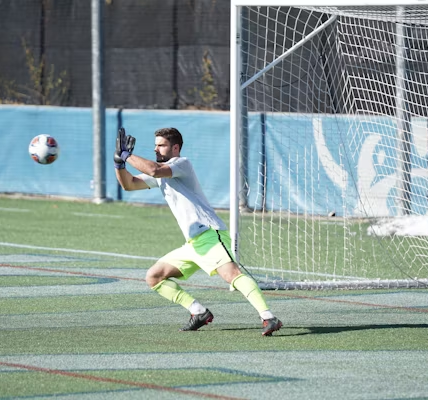Premier League Suspensions: The Premier League is one of the most exciting and competitive football leagues in the world. Its intense nature often leads to moments of brilliance, but also moments of controversy and aggression. As a result, suspensions are an inevitable part of the league, impacting players, teams, and fans alike. Understanding the dynamics of Premier League suspensions is crucial for anyone who follows the sport. This article explores the rules surrounding these suspensions, their implications on teams and players, and some of the most notable suspension cases in Premier League history.

The Basics of Premier League Suspensions
Suspensions are disciplinary actions imposed by football governing bodies like the English Football Association (FA) or the Premier League itself. These actions are typically taken against players who have committed offenses on the field, such as violent conduct, misconduct, or accumulation of yellow cards.
The key reason behind these suspensions is to maintain the integrity of the game, ensuring that matches are played fairly and that players adhere to the standards of conduct set by the league and the governing bodies. Players who commit serious fouls or demonstrate unsporting behavior can be suspended for a fixed period, meaning they are ineligible to participate in one or more games during their suspension.
Types of Suspensions in the Premier League
There are several different types of suspensions that a player may face in the Premier League. Each type corresponds to the severity of the offense committed.
Yellow Card Accumulation
One of the most common reasons for suspension in the Premier League is the accumulation of yellow cards. Similarly, after receiving 10 yellow cards in 32 matches, a player can face a two-match suspension. The rules around yellow cards are put in place to encourage players to play the game fairly without resorting to reckless behavior.
Red Cards
A red card results in an automatic suspension. Red cards are given for serious offenses such as violent conduct, serious foul play, or a professional foul denying an obvious goal-scoring opportunity. A player who is sent off with a red card is usually banned for a minimum of one match. However, if the offense is considered particularly severe (e.g., violent conduct), the suspension may be extended. Players can appeal the red card decision, but if the appeal is unsuccessful, they must serve the suspension.
Violent Conduct
Violent conduct suspensions occur when a player engages in an act of aggression that goes beyond the usual physicality of football. This could include actions such as headbutting, kicking, or striking an opponent. The FA has a panel of experts who review incidents after matches to determine whether violent conduct has occurred, and if so, the player can be suspended.
Improper or Offensive Behavior
In addition to physical altercations, players can also be suspended for verbal misconduct or discriminatory behavior. The FA has strict rules against racist remarks or any form of offensive language. Players who breach these rules may face significant suspensions, with the length depending on the nature of the incident.
Diving or Simulation
Diving, or simulation, refers to players deliberately falling to the ground in an attempt to deceive the referee into awarding a foul. While not always punished immediately during a match, the FA may later issue retrospective bans for diving. A review panel will analyze footage of the incident, and if they conclude the player was attempting to deceive the referee, the player could face a suspension.
Match Fixing or Gambling-Related Offenses
While rare, match-fixing and betting-related offenses are taken extremely seriously in the Premier League. Players found guilty of influencing match outcomes or betting on games face lengthy suspensions, as these actions threaten the integrity of the sport. In some cases, players have received lifetime bans from football for such offenses.
The Impact of Suspensions on Teams and Players
Suspensions in the Premier League can have significant consequences for both players and their teams. Here’s a look at the impact suspensions have on various aspects of the game.
Team Performance
When a key player is suspended, the team may struggle in their absence. Players who are central to their team’s attacking play, for example, can be difficult to replace, leading to a drop in the team’s overall performance. Similarly, defensive suspensions may leave a team vulnerable to goals. Coaches must adapt their strategies to account for these absences, often leading to changes in tactics or formations.
Player Morale
Suspensions can also affect the morale of players. Those who have been sent off or suspended for behavior-related reasons may experience a dip in their confidence. On the other hand, players who are wrongfully suspended may become frustrated or disillusioned, which can affect their overall performance on the pitch.
Financial Consequences
Suspensions not only affect the team’s performance, but they can also have financial implications. Clubs might face fines if their players breach conduct rules, and the absence of star players can result in lost revenue from ticket sales and merchandise. Additionally, players suspended for an extended period might see their wages affected depending on the nature of their suspension.
Public Perception
Players who are repeatedly suspended for poor behavior may develop a negative public image. Fans, pundits, and even sponsors take note of a player’s disciplinary record, and repeated suspensions can hurt a player’s reputation. In extreme cases, such as violent conduct, a player’s image can be severely tarnished, potentially leading to difficulties securing future contracts or endorsements.
FAQs
How many yellow cards lead to a suspension in the Premier League?
In the Premier League, a player who accumulates five yellow cards in the first 19 matches of the season will be given a one-match suspension. If a player receives ten yellow cards by the 32nd match, they face a two-match suspension. These rules are designed to encourage fair play and discourage reckless behavior. Players who have accumulated a significant number of yellow cards may also be at risk of longer suspensions in the event of further infractions.
How does the FA review red card incidents?
The Football Association (FA) has a panel of experts that reviews red card incidents after the match. If the on-field referee didn’t penalize a player for a serious offense, the FA may take retrospective action. This means players who were not sent off during the game but who clearly committed violent conduct or simulation can still face a ban. The use of Video Assistant Referee (VAR) has also enhanced the ability to make accurate and quick decisions on incidents that could lead to suspensions.
Can players appeal against a suspension?
Yes, players can appeal a red card suspension. If a player or their club believes that the red card decision was incorrect, they can file an appeal with the FA. The appeal process involves reviewing match footage and considering whether the referee’s decision was justified. If the appeal is successful, the suspension may be overturned, and the player may be cleared to play in the next match. However, if the appeal is rejected, the suspension will remain in place.
What is the impact of suspensions on Premier League teams?
Suspensions can have significant effects on teams, particularly if key players are involved. Teams often have to adjust their tactics and formations to account for the absence of suspended players. The loss of a star player can also negatively impact the team’s performance and morale. Additionally, frequent suspensions can damage a player’s reputation and disrupt their rhythm, affecting their long-term form and career.
What are the rules regarding diving or simulation in the Premier League?
Diving, also known as simulation, occurs when a player deliberately falls to the ground to deceive the referee into awarding a free kick or penalty. In recent years, the Premier League has become more proactive in punishing this behavior. If the FA determines that a player has dived after reviewing footage, they can impose a two-match suspension. This is designed to deter players from trying to gain an unfair advantage through dishonest actions.
How do Premier League suspensions affect player contracts?
While a suspension doesn’t directly affect a player’s contract, it can have an impact on their playing time and performance. If a player is repeatedly suspended, it may harm their reputation, and managers may lose trust in them, leading to reduced playing time. In some extreme cases, continuous misconduct or suspension history can lead to clubs considering transfer options or even terminating contracts.
To read more, click here



